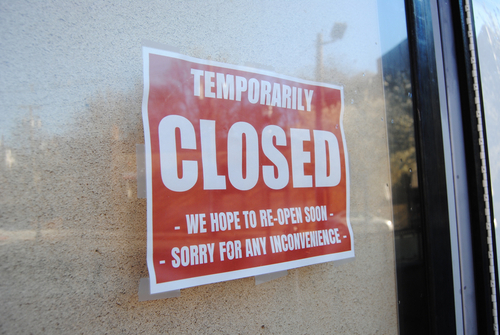
Gov. Tom Wolf on Monday announced three actions to slowly restart parts of the state’s economy, including permitting online vehicle sales under Senate Bill 841, allowing for curbside pickup at certain Pennsylvania Liquor Control Board locations, and restarting state construction projects beginning May 8.
The governor said the limited steps to move forward will be closely watched to ensure that they do not result in a rapid increase in COVID-19 cases. The state’s stay-at-home order remains in effect.
“I want to caution that we will not be resuming operations as they were in February,” Wolf said. “We’re going to continue to take precautions that limit our physical contact with others, and we will closely monitor this to see if it can be done safely.”
The latest actions from the Democratic governor follow criticism from Republican state lawmakers and the business community that the governor mismanaged which types of industries were deemed essential in the state and which businesses could and could not remain open during the coronavirus pandemic.
On Monday, the governor signed Senate Bill 841 into law, allowing Pennsylvania notaries public to perform remote online notarizations, which will allow auto dealerships to conduct limited car sales and leasing operations through online sales. Auto dealerships may continue to remain open for vehicle repairs and auto part sales, but in-person car sales and leases are still prohibited, the governor’s office said.
In addition, public and private residential and non-residential construction may resume statewide starting May 8, in accordance with safety guidance that soon will be issued by the administration. Construction projects already deemed life-sustaining may continue while adhering to social distancing, Wolf’s office said.
And the state’s Liquor Control Board began accepting orders by phone on Monday for curbside pickup at 176 locations.
Today’s announcement follows the governor’s COVID-19 recovery plan for the businesses of Pennsylvania, which was released Friday.
In the outline of his Plan for Pennsylvania, Wolf identified six key points in his process of reopening the state’s economy, which included using a data-driven approach; abiding by guidance and recommendations for employers, individuals, and health care facilities; making available necessary personal protective equipment and testing; using a monitoring and surveillance program for swift mitigation action; keeping protections in place for vulnerable populations; and limiting large social gatherings.
While several state Democratic leaders said they support Wolf’s plan, Senate Republican leadership viewed the effort as undefined and conceptual, particularly expressing disappointment with the lack of specifics.
“We hoped to see a real plan from the Governor today to move Pennsylvania forward from the damage caused by the COVID-19 pandemic,” Pennsylvania Senate President Pro Tempore Joe Scarnati (R-25) and Majority Leader Jake Corman (R-34) said in a joint statement on Friday. “We have said from the beginning that any recovery plan should include transparency, common sense, clear standards and benchmarks to advance, and the input and cooperation from all branches of government.”
Pennsylvania Manufacturers’ Association President and CEO David Taylor tweeted on April 17 that the governor’s plan lacked structure for reopening businesses and relied on “a lot of wishful thinking.”
Similarly, House Speaker Mike Turzai (R-Allegheny County) called the plan more of an “ideological map” rather than an assessment of Pennsylvania’s immediate economic needs. Turzai specifically noted his hope that the governor would give appropriate attention to Senate Bill 613, which was introduced earlier this month.
“The legislation has Gov. Wolf develop and implement a mitigation plan to allow certain businesses to safely operate again. Safety matters, and so does containing the unemployment numbers,” he wrote in an April 16 tweet.
In their statement, Scarnati and Corman noted that while Pennsylvania ranks fifth in the nation in the number of confirmed COVID-19 cases, it ranks first in the number of new Unemployment Compensation claims.